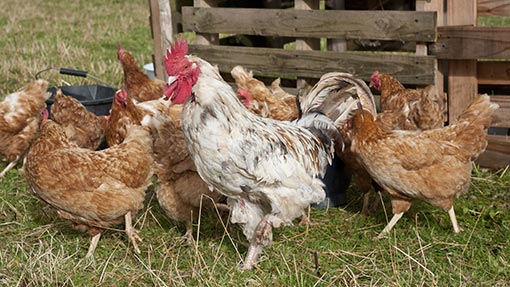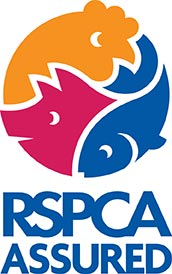Freedom Food farm assurance scheme rebranded

Disappointing market penetration has prompted a relaunch of the Freedom Food retail brand, which from 2015 will appear on food packs as “RSPCA Assured”.
The relaunch has been timed to coincide with the assurance scheme’s 20th anniversary. But, according to Freedom Food market controller David Halliday “consumer awareness is nowhere near where we need it to be”.
This is despite the fact that the scheme now covers 40m animals in the UK, including the vast majority of non-cage egg production. It also covers 31% of UK pigs, 16% of turkeys and 7% of ducks.
But in other sectors, Freedom Food has done less well, with just 2% of broilers and less than 1% of beef, dairy and sheep production produced to its standards.
According to board member Tom Vaughan, there is a clear need to raise consumer awareness and to encourage shoppers to make the animal welfare choice.
See more: New standards for Freedom Food broilers
Consumer research conducted last year had shown that the existing brand mark was not eye-catching enough, while some consumers found it misleading, as they thought it meant free range.

Instead, they said more should be made of the association with the RSPCA, which would give a clearer focus on welfare and would be more recognisable.
“Some 96% of the population are aware of the RSPCA, and that compares with Freedom Food which, after all the work we have done, still only about a quarter of the population are aware of,” said Mr Vaughan.
Chief executive Jez Cooper said the move to a new logo, which features a chicken, a fish and a pig above the words RSPCA Assured, would bring significant benefits to members, retailers and the food service sector. “It will help bring RSPCA welfare standards to millions more farm animals,” he suggested.
The rebrand will be supported by a sustained marketing and TV advertising campaign in 2015.
“The aim is to position the label as identifying products that have come from farm animals inspected to RSPCA standards – whether indoors, outdoors, free range or organic.”
But for business to business activity, the Freedom Food brand will continue and will still be the name of the scheme and the limited company.
Twenty years of Fredom Food
During the past 20 years, there have been many changes in the structure of farming, Freedom Food market controller David Halliday told a briefing in London.
For example, the number of dairy cows in the country had fallen 47%, while 75% of these cows were now in herds of over 100, compared with 50% in 1994.
Chicken production had grown rapidly, now accounting for 87% of all terrestrial animals, while 70% of birds were in flocks of 100,000 or more, compared with 50% in 1994.
There have also been significant improvements in animal welfare during that time, including the ban on sow stalls in 1999, and conventional battery cages in 2012. “Enriched indoor broiler systems, pioneered by the RSPCA and Freedom Food, including straw bales and natural light, have also increased activity levels and improved leg health for chickens,” he added.
But, while the Freedom Food scheme now covers 40m animals in the UK, there was still a lot more to do, said Mr Halliday.
The challenges for the next 20 years were identified by Dan Crossley of the Food Ethics Council. In particular, the pressures of population, diet change and resource depletion globally would encourage food producers to opt for high-yielding breeds and systems.
This could run counter to good animal welfare, so schemes such as Freedom Food would have an important role to play.
